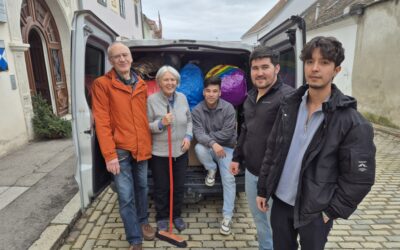“Pursue righteousness, devotion, faith, love, patience, and gentleness” (1 Tim 6:11).
How will we in our daily lives be able to live all these virtues?
Perhaps it will seem too difficult to live them out one by one. Then why not live in the present with a radical measure of love? If anyone lives the present in the will of God, God then lives in that person. And if God dwells in a person, then love is there as well.
Those who live in the present, whatever the circumstances, are patient, perseverant, gentle, merciful, and not attached to anything because they have love in its highest and purest form. They truly love God with their whole heart, soul, and strength. They are enlightened from within, are guided by the Holy Spirit, and, therefore, they do not judge and do not think evil. They love their neighbors as themselves and have the audacity to live the Gospel challenges of “offering the other cheek” and of “going the extra mile” (see Mt 5:39, 41).
“Pursue righteousness, devotion, faith, love, patience, and gentleness.”
This advice is addressed to Timothy, Paul’s faithful collaborator, traveling companion, and friend; he was so trustworthy that he became a kind of son to Paul. After having condemned pride, envy, fighting, and attachment to wealth in his letter, the apostle wrote directly to Timothy: “But, as a man dedicated to God, you must avoid all that.” He then invited him to strive for a life that is resplendent in both human and Christian virtues.
In these words, we can hear resonate the commitment taken on at baptism to renounce (“avoid”) evil and to pursue (“strive for”) good. Here too it is from the Holy Spirit that such a radical transformation and a capacity and strength to live out Paul’s teaching can come about.
“Pursue righteousness, devotion, faith, love, patience and gentleness.”
The experience lived out by the initial group of young women who gave life to the Focolare Movement in Trent, back in 1944, provides us with an insight into how we can live this Word of Life, especially the part about “love, patience, and gentleness.”
It was not always easy to live the radicality of love, especially at the beginning. Even among ourselves, in our relationships with each other, sometimes some dust would settle in and our unity would become less strong. This happened, for example, when we looked at the defects and faults of the others and we judged them, for then the current of love among us turned cold.
In order to remedy this situation, one day we thought of making a pact together and we called it “the pact of mercy.”
Every morning we made a decision to look at all the neighbors that we would meet that day—in the focolare, at school, at work, and other places—as if they were new, totally new, no longer remembering their defects at all and covering everything with love. This meant approaching each person with this total amnesty in our hearts, with this universal forgiveness.
It was a demanding commitment and all of us took it on together. It helped us to be—as far as possible—the first to love always, to live in imitation of our merciful God, who forgives and forgets.
by Chiara Lubich




0 Comments